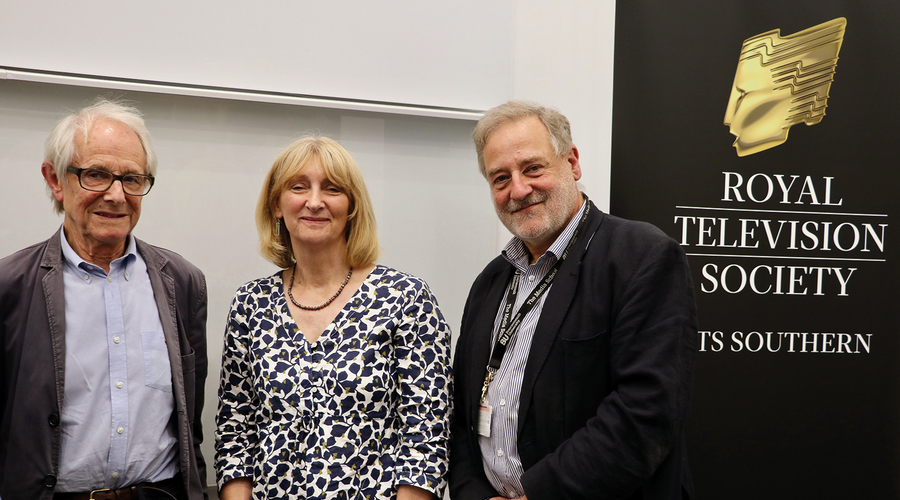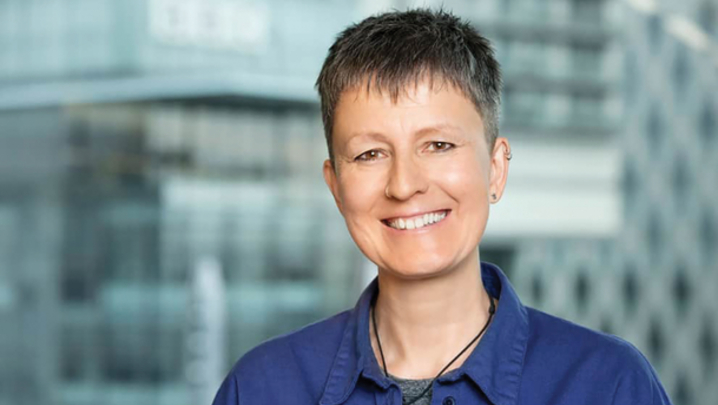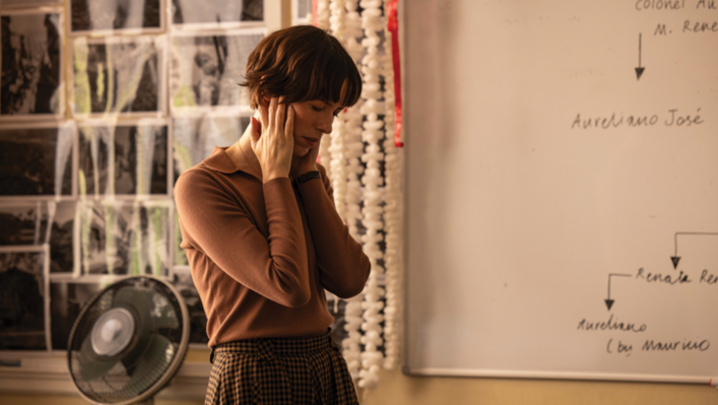An enthusiastic audience of 250 at Bournemouth University enjoyed an evening with double Palme d’Or winner Ken Loach in July.
Now 87, the director said he had completed his last feature, The Old Oak – the final film in a trilogy exploring themes of social justice and inequality, with I, Daniel Blake and Sorry We Missed You.
RTS Southern Chair Steph Farmer talked to Loach about his early career, why he developed a passion for working with untrained actors and his relationship with writer Paul Laverty, which began on his 1996 film Carla’s Song.
Loach entertained the audience with anecdotes about his early career at the BBC, learning how to work with cameras in close-up with actors on The Wednesday Play. Most famously, he directed 1966’s Cathy Come Home, voted number 2 by the BFI in its top 100 TV shows of the 20th century.
Loach said that working on TV cop series Z Cars and the drain of multiple rehearsals was the start of him wanting to work in a more spontaneous and authentic way, using untrained actors, and researching roles with those who do them as a day job.
Loach chats to Laverty daily, discussing a variety of topics, including football. Projects emerge from their shared interest in the struggle for social justice. A key takeaway from the event was that young film-makers need to find someone they can work with. Loach emphasised that film-making is a collaborative endeavour.
Earlier, Dorset Equality Group’s Sharen Green had talked with Loach about how he uses his work to highlight inequality in society.
Farmer said: “The world needs more film-makers like Ken Loach, who are able to put a magnifying glass to the injustices in our society through the lens of the everyday struggles of those who are suffering poverty and injustice and unable to get their voices heard.”
Bournemouth University academic Trevor Hearing added: “It’s so important for the next generation to… be inspired to tell stories that reflect real lives. Ken’s inspirational career as a director has shown that film and TV can be powerful tools for change in our society.”
The event was put on by Bournemouth University, Dorset Equality Group and RTS Southern Centre.







